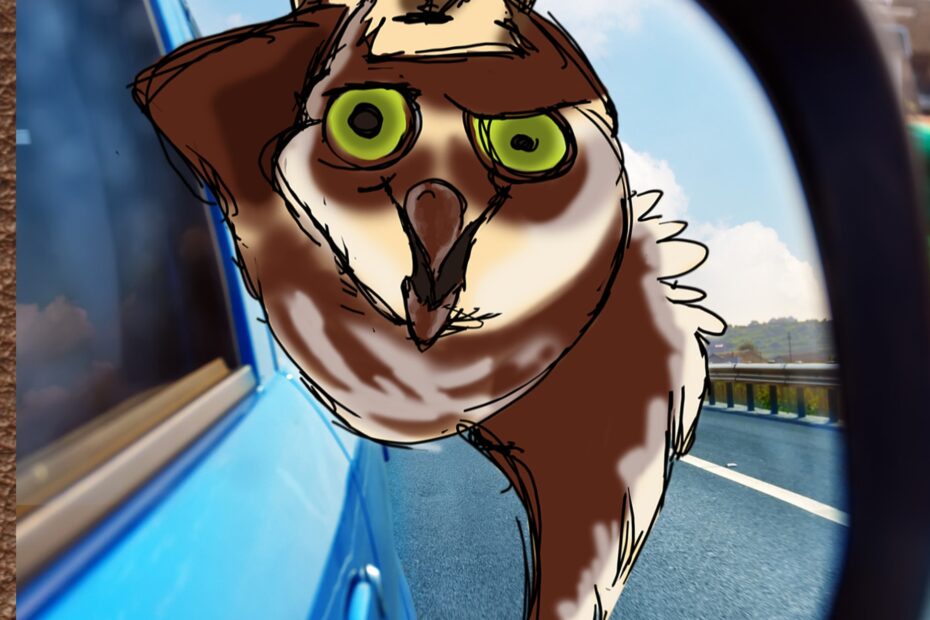by ELMORE TERADONOVICH, Alternate Reality News Service Film and Television Writer
When most people say, “Let me sleep on it,” they mean that they need more time to come up with a solution to a problem. When a creative in Hollywood says it, they mean it literally.
Take the case of screenwriter Florinda Battersly (it’s too small to carry her emotional baggage in any ca – uhh, anyway). The script she had just completed had a killer first act: family man Bruce Breyson is killed in a shootout between WalMart greeters and Starbucks baristas in a corporate merger gone bad, and is reincarnated as the family dog, Otto the Man. It also had an explosive third act: OtM saves the planet when he causes the invading alien space craft to blow up by dropping a doggie bone into its fusion reactor. The problem was that the screenplay (working title: Doggone Those Pesky Aliens!) had no second act.
Literally. Pages 34 to 79 of the screenplay were completely blank.
Battersly had read the coverage of a treatment of a segment on Entertainment, Right Now! about screenwriters who had their bedrooms fitted with sensors that monitored their brainwaves while they slept, literally reading their dreams. When they played their dreams back the next day, they often came up with creative solutions to problems that had blocked them the day before. Battersly thought, What could it hurt? (She was obviously unaware that the original design for the sensor array involved 27 wires drilled through the skull and clamped directly onto the brain.)
The night after she had had the sensors installed in her bedroom, Battersly dreamed that she was the chicken plucker in the third act of Shakespeare’s The Tragedy of the Coriolanus Effect. She knew her lines (it wasn’t that kind of dream), but she was hampered in delivering them by the badger that had grown on her face in place of a nose. Not only did the badger make it hard for her to open her mouth to speak, but it randomly spit out last Thursday’s stock prices in a voice that could cut Glass (fortunately, the composer wasn’t around). After a few seconds of this, Battersly morphed into a volume of air in the shape of Charlie Sheen’s head (although with Kristen Wiig’s lips) floating three metres above King Street in Queenstown. Well, that was several minutes of her dream life that she’ll never get back! Then, she was a page in an early printing of Laurence Sterne’s Tristram Shandy – unfortunately, it was page 147. Then, she was a painting of a polar bear in a snowstorm hung backwards on the wall of one of the less accessible galleries in the Museum of Modern Art. Just when she thought she could see a pattern emerging, Battersly was watching herself pour a cup of hot coffee on Dave Gahan’s keyboards during a performance in Petawa on his band’s Music for the Masses tour. Gahan nodded absently and muttered, “I like the sound, but can it be reproduced electronically?”
When she woke up, Battersly knew that the solution to her creative problem was to have the main character meet up with a secret society of dogs whose mission was to keep humanity safe from alien attack and squirrels. Especially squirrels (fortunately, protection skills are highly transferable). He would be surprised at how much reading becoming a member of the society would entail – most of the second act would be taken up with OtM’s paper training.
There was a bidding war on the subsequent screenplay, which sold to Disney (a wholly owned subsidiary of Walt Disney Corporation) for a high lots of figures.
Many production companies have installed “dreamatoria” in their offices, encouraging their employees to sleep on the job. This has proven to be especially helpful in the writing of television series, with their grinding schedules and bad haircuts.
“It used to be that a half dozen writers for a TV show would be put in a room and bounce ideas off each other until they came up with something useable or they all had to go to the bathroom,” explained Arther Appel-Crumble, a Historian of Technologies That Should be Obsolete By Now So Why Aren’t They? at the University of Athens, Moosejaw Campus. “Now, when half a dozen writers go into the room, they put on their jammies and sleep in neat rows of beds. It’s kind of creepy, actually…”
Does this mean that writer’s block is effectively a thing of the past? “Why would we want to get rid of lined pads of paper?” Appel-Crumble asked, confused. “Some writers find them very useful.”
After I explained what the question was actually about, Appel-Crumble replied, “I sure hope so! I’ve got a first-look deal with Disney (a wholly owned subsidiary of itself) – now all my screenplay needs are a first, second and third act!”


